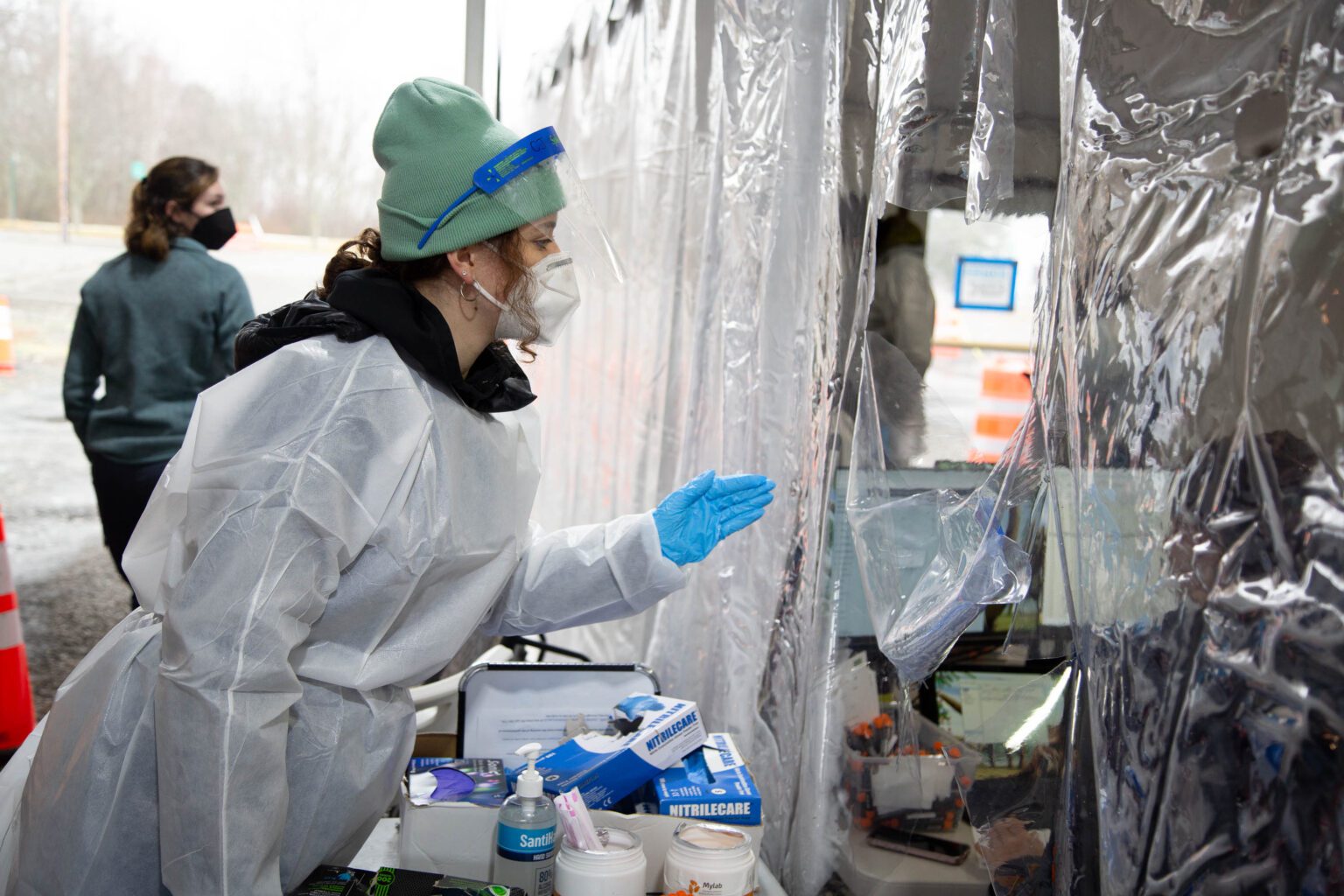Tensions erupted at a Whatcom County Council meeting Jan. 31, following a council decision to reject the applications of COVID-19 vaccine skeptics to the county’s Public Health Advisory Board.
Council member Todd Donovan stormed out of the meeting, where the county council was convening as the Whatcom Health Board. He was reacting to a statement from fellow councilor Tyler Byrd, who had suggested the advisory board chairman was blocking the appointments of candidates favored by conservatives.
Three weeks earlier, conservative council members Byrd, Ben Elenbaas and Kathy Kershner voted to appoint Misty Flowers, Susan Prosser and Hannah Ordos to the board. The four who make up the council’s progressive majority — Donovan, Carol Frazey, Kaylee Galloway and Barry Buchanan — voted against them, leaving them all one vote short of an appointment.
Flowers reasserted her skepticism over vaccines at the Jan. 31 meeting, making the unsubstantiated claim that hundreds of people in Bellingham between the ages of 20 and 60 were “dying suddenly without cause,” suggesting without any evidence their deaths were due to the COVID-19 vaccine. A year ago, Prosser served a groundless legal claim against three Whatcom County school districts, demanding they end mask and vaccine mandates, and halt vaccine clinics.
The dispute over the appointments was first reported in The Bellingham Herald.
When making the advisory board appointments, the council’s progressives said they wanted to honor a request in a Jan. 4 memo from board Chairman Steve Bennett, asking the council to leave three positions open for members of other county boards.
Bennett explained his rationale in the memo: Holding the three seats for members of other boards would meet the advisory board’s stated goal of applying a “hub and spoke” model to appointments. The advisory board would act as a “hub” with direct connections to other county boards, such as the Developmental Disabilities Advisory Board and the Opioid Task Force.
Council member Byrd, on Jan. 31, said Bennett’s rationale sounded to him like an effort to block certain candidates.
“I very much do feel like that … letter asking us to hold off was about having people not appointed that you didn’t want appointed,” Byrd said.
“Every single one of them had fantastic experience that would lend itself to this group,” Byrd added, referring to Flowers, Prosser and Ordos.
Angered, Donovan mocked Byrd’s praise of the rejected applicants.
“If we want to talk about the fantastic qualifications these people have — do we want to talk about that?” Donovan asked, rhetorically, before walking out of the meeting.
In an interview Feb. 1, Donovan said two of the rejected applicants, Prosser and Flowers, were not qualified to be on a health board.
“Regardless of the ‘hub and spoke’ model,” Donovan said, “isn’t there some minimal qualifications you would expect (from a health board candidate)? Are they within the bounds of mainstream science? One would hope.”
The Centers for Disease Control and Prevention continues to assert that staying current with COVID-19 vaccines “is the most effective tool we have for reducing death, hospitalization and severe disease.”
The advisory board seeks members who have “expertise, career experience and consumer experience in areas impacting public health and with populations served by the health department,” according to council meeting materials. The council is directed to give preference to “tribal, racial, ethnic and other minorities.”
Council member Elenbaas said the council should also consider “diversity of thought,” and he urged the council on Jan. 10 to appoint Flowers, Prosser and Ordos to the board.
“There’s folks on this council that may view what they have to say as an opposing voice,” Elenbaas said. “An opposing voice or a different perspective is exactly what our boards and commissions need, to have good, robust policy and recommendations move forward.”




